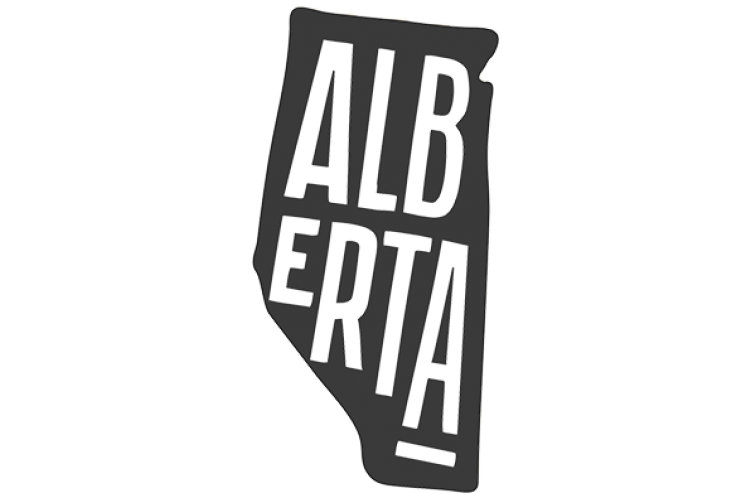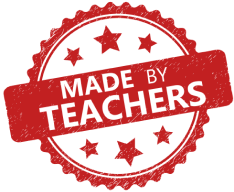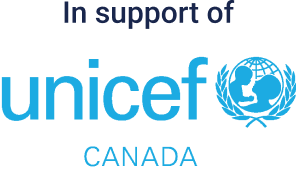Alberta Grade 4

CLICK HERE FOR CURRICULUM CONNECTIONS, LESSONS AND SUPPORT RESOURCES.
Kids Boost Immunity (KBI) provides educational content (lessons and support materials) developed by teachers and where needed, health experts, that is directly linked to curriculum and is available completely for free. Each lesson is paired with an online quiz that students can take on a laptop, tablet, or phone. Every time a student scores 80% or higher on a quiz, we donate life-saving vaccines to UNICEF Canada. To learn more about KBI, click here.
Click on the overarching curriculum themes below to see the curriculum outcomes that match KBI educational content. The full Grade 4 Alberta Curriculum Connections document is here.
- ENGLISH LANGUAGE ARTS AND LITERATURE 4
-
Curriculum:
ORGANIZING IDEA Vocabulary: Understanding the meaning and formation of words facilitates oral communication, reading, and writing.
LEARNING OUTCOME: Students expand vocabulary and analyze morphemes to communicate in multiple contexts.
- Understanding
- An extensive and varied vocabulary enhances effective communication in a variety of contexts.
- Skills & Procedures
- Confirm word meanings, spellings, or word choices, using a variety of digital or non-digital resources.
LEARNING OUTCOME: Students investigate strategies and connections that support text comprehension.
All KBI modules are applicable.
Lessons have a link to unit/lesson plans on each lesson title. These include adaptable literacy building activities such as: vocabulary worksheets with phonetic structures, spelling exercises, matching definitions to vocabulary terms, sentence writing using vocabulary terms, prefix/ suffix exercises.
- Understanding
- ENGLISH LANGUAGE ARTS AND LITERATURE 4 & SCIENCE 4
-
Curriculum:
ENGLISH LANGUAGE ARTS AND LITERATURE 4 ORGANIZING IDEA Comprehension: Text comprehension is supported by applying varied strategies and processes and by considering both particular contexts and universal themes.
LEARNING OUTCOME: Students investigate strategies and connections that support text comprehension.
- Knowledge
- Inferencing involves multiple critical-thinking skills, including
- considering cause-and-effect relationships
- answering personal wonderings
- combining information from various sources to draw conclusions
- Understanding
- Comprehension involves inferencing and relying on multiple critical-thinking skills when engaging with texts.
- Skills & Procedures
- Infer cause-and-effect relationships in texts.
- Combine information from various sources to draw conclusions.
SCIENCE 4 ORGANIZING IDEA Scientific Methods: Investigation of the physical world is enhanced through the use of scientific methods that attempt to remove human biases and increase objectivity.
LEARNING OUTCOME: Students investigate evidence and reflect on its role in science.
- Knowledge
- Relevant data addresses the question that is being investigated.
- Some observations and data are not relevant to the question being investigated.
- All relevant data must be considered.
- Evidence is produced through the study and interpretation of data.
- Understanding
- Ongoing collection of evidence provides a way to expand and adjust previous knowledge.
- Reliability refers to consistency of data and evidence.
- Reliability of evidence can be affected by the amount of data collected and whether the data can be reproduced.
- Validity refers to how accurately data and evidence reflect what is supposed to be described or measured.
- Knowledge
- Data can be measured more accurately using tools or technology.
- Understanding
- Conclusions drawn during investigations must be based on reliable and valid evidence.
Applicable KBI lessons:
1. Critical Thinking & Evaluating Information
- Literacy builder worksheet/answer guide
- Lesson worksheet/answers
- Video worksheet/answers
- Inquiry activities/answer guides
- Numeracy activity/answers
- Knowledge
- SCIENCE 4
-
Curriculum:
SCIENCE 4 ORGANIZING IDEA Earth Systems: Understandings of the living world, Earth, and space are deepened by investigating natural systems and their interactions.
LEARNING OUTCOME: Students investigate the systems of Earth and reflect on how interconnections sustain life.
- Knowledge
- Changes in one system that can impact another system include changes in
- number of organisms
- food sources
- habitat
- water distribution and cleanliness
- weather patterns
- Changes in one system that can impact another system include changes in
- Understanding
- Earth’s systems are interconnected and can be impacted by small changes.
- Skills & Procedures
- Explain how changes made to one system can have impacts to other systems
LEARNING OUTCOME Students investigate the systems of Earth and reflect on how interconnections sustain life.
- Knowledge
- Conservation is the preservation and protection of Earth‘s systems from pollution, depletion, or extinction.
- Conservation practices can be implemented in natural and human-made areas.
- Understanding
- Conservation can impact land, natural resources, and organisms.
- Skills & Procedures
- Investigate conservation practices in natural and human-made areas.
SCIENCE 4 ORGANIZING IDEA Living Systems- Understandings of the living world, Earth, and space are deepened by investigating natural systems and their interactions.
LEARNING OUTCOME: Students analyze organisms and relate external structures to functions.
- Knowledge
- Organisms are living things that respond to stimuli and include plants, humans, and other animals.
- Organisms can be classified in various ways, including by
- appearance
- habitat
- structures
- Understanding
- A variety of organisms live on Earth and have external structures that support various functions.
- Skills & Procedures
- Find and classify local plants and animals based on appearance, habitat, and structures.
Applicable KBI lessons:
1. Classifying Living Things
- Literacy builder worksheet/answer guide
- Lesson worksheet/answers
- Video worksheet/answers
- Numeracy activity/answers
2. Diversity of Living Things (*Note: This is a Grade 6-7 learning module but fits the Grade 4 curriculum.)
- Literacy builder worksheet/answer guide
- Lesson worksheet/answers
- Video worksheet/answers
- Numeracy activity/answers
- Knowledge
- SCIENCE 4
-
Curriculum:
SCIENCE 4 ORGANIZING IDEA: Earth Systems: Understandings of the living world, Earth, and space are deepened by investigating natural systems and their interactions.
LEARNING OUTCOME: Students investigate the systems of Earth and reflect on how their interconnections sustain life.
- Knowledge
- Earth scientists call Earth’s systems the spheres, including the
- lithosphere
- atmosphere
- hydrosphere
- biosphere
- The lithosphere
- is the outer layers of Earth’s surface
- is made of rocks
- contains soils and minerals that support life
- The atmosphere
- is a gas layer that surrounds Earth
- warms Earth’s surface
- reduces extremes of temperature
- contains oxygen, which is used for breathing
- The hydrosphere is
- all areas of Earth that are covered with water
- necessary for sustaining life
- The biosphere includes all
- life on Earth
- regions of Earth where life is supported
- Earth scientists call Earth’s systems the spheres, including the
- Understanding
- Earth’s systems interact with one another, resulting in environments that sustain life.
- Skills & Procedures
- Make connections between human activity and Earth’s systems.
- Analyze the interconnectedness of Earth’s systems.
- Knowledge
- Changes in one system that can impact another system include changes in
- number of organisms
- food sources
- habitat
- water distribution and cleanliness
- weather patterns-Create a plan to implement a conservation practice in a local environment.
- Changes in one system that can impact another system include changes in
- Understanding
- Earth’s systems are interconnected and can be impacted by small changes.
- Skills & Procedures
- Explain how changes made to one system can have impacts on another system.
- Knowledge
- Conservation is the preservation and protection of Earth ‘s systems from pollution, depletion, or extinction.
- Understanding
- Conservation can impact land, natural resources, and organisms.
- Skills & Procedures
- Investigate conservation practices in natural and human-made areas.
- Knowledge
- Conservation can be practised through personal actions, including .
- use of electricity; e.g., turning off lights when leaving a room
- use of water; e.g., taking shorter showers
- reducing waste; e.g., using reusable packaging
- Conservation can be practised through community or global actions, such as
- use of energy-efficient alternatives, e.g., solar panels
- supplying water to support crops (irrigation)
- Conservation can be practised through personal actions, including .
- Understanding
- Conservation of Earth’s systems involves personal, community, and global action.
- Skills & Procedures
- Describe examples of personal actions that contribute to conservation in daily life.
- Knowledge
- Water is a basic need for plants and animals.
- Understanding
- Caring for water and water sources is a shared responsibility.
- Skills & Procedures
- Demonstrate respect for water in the local environment
Applicable KBI lessons:
1. Environment & Climate Change
- Literacy builder worksheet/answer guide
- Lesson worksheet/answers
- Video worksheet/answers
- Numeracy activity/answers
- Knowledge
- SCIENCE 4 & SOCIAL STUDIES 4
-
Curriculum:
SCIENCE 4 ORGANIZING IDEA Earth Systems: Understandings of the living world, Earth, and space are deepened by investigating natural systems and their interactions.
LEARNING OUTCOME: Students investigate the systems of Earth and reflect on how their interconnections sustain life.
- Knowledge
- First Nations, Metis, and Inuit hold understandings of Earth systems that sustain life, including that all things are interconnected.
- Understanding
- Earth’s systems interact with one another, resulting in environments that sustain life.
- Skills & Procedures
- Make connections between human activity and Earth’s systems.
- Analyze the interconnectedness of Earth’s systems.
SOCIAL STUDIES 4 ORGANIZING IDEA Systems: Evaluating processes and structures of organizations builds understanding of decision making in the world.
LEARNING OUTCOME: Students examine the role of the fur trade in the development of Canada.
- Knowledge
- Through the fur trade, furs were shipped from North America to Europe, where supply was low, and manufactured goods were shipped from Europe to North America, where demand was high.
- Roles of First Nations, Métis, and Europeans that contributed to the fur trade included
- hunters and trappers
- interpreters and guides
- clerks
- Understanding
- Trade can contribute to social and economic change.
- Skills and Procedures
- Model the fur trade’s system of exchange.
- Discuss interactions between First Nations, Métis, and Europeans that occurred as part of the fur trade.
SOCIAL STUDIES 4 ORGANIZING IDEA Time and Place: Exploring the dynamic relationships between people, place, and time supports understanding of perspectives and events to make meaning of the world.
LEARNING OUTCOME: Students investigate changes in Canada’s political boundaries.
- Knowledge
- First Nations and Europeans made treaties with each other, such as the Two Row Wampum (Gaswéñdah), to start a relationship of living side by side.
- Understanding
- Wars, rivalries, and treaties in Europe disrupted life in the colonies.
- Skills and Procedures
- Compare reasons for exploration and establishing colonies around the world.
- Discuss ways relationships were built between First Nations and Europeans.
LEARNING OUTCOME: Students examine significant historical events that contributed to the formation of the country of Canada.
- Knowledge
- Colonization involved European monarchs expanding empires by claiming land and establishing colonies on land already occupied by Indigenous peoples around the world, including in North America (imperialism).
- Colonists brought belief systems and ways of organizing society to the colonies, including
- religions
- leadership
- education
- health care
SOCIAL STUDIES 4 ORGANIZING IDEA Systems: Evaluating processes and structures of organizations builds understanding of decision making in the world.
LEARNING OUTCOME: Students examine the role of the fur trade in the development of Canada.
- Understanding
- Trade can contribute to social and economic change.
Applicable KBI lessons:
1. Life on Turtle Island
- Literacy builder worksheet/answer guide
- Lesson worksheet/answers
- Video worksheet/answers
- Numeracy activity/answers
2. Cooperation and Colonization
- Literacy builder worksheet/answer guide
- Self reflection guide
- Knowledge
- SOCIAL STUDIES 4
-
Curriculum:
SOCIAL STUDIES 4 ORGANIZING IDEA Citizenship: Understanding local, national, and global issues empowers individual and collective action toward an inclusive society.
LEARNING OUTCOME: Students investigate rights and responsibilities in Canada.
- Knowledge
- Citizenship in Canada provides rights, such as the right to be treated equally regardless of difference.
- Citizenship in Canada carries responsibilities, such as contributing to the community, respecting the rights of others, and voting.
- Citizens in Canada have rights, freedoms, and responsibilities.
- Understanding
- Rights come with responsibilities.
- Skills & Procedures
- Reflect on personal rights and responsibilities.
Applicable KBI lessons:
1. Canada's Three Levels of Government
- Literacy builder worksheet/answer guide
- Lesson worksheet/answers
- Video worksheet/answers
- Numeracy activity/answers
- Knowledge
Curriculum-Related Themes Throughout the Year
- Reflecting on hardships and courage during WWII (November)
-
Applicable KBI lessons:
1. Remembrance Day / Veterans Day / Armistice Day
- Being kind and building leadership skills to help make a difference to others (December)
-
Applicable KBI lessons:
1. Winter Break - Spreading Kindness
- Literacy builder worksheet/answer guide
- Activity - Making A Difference
- Activity - Compare and Contrast special things at this time of year
- Activity - Recipe book
- Activity - Shape Poem
- Highlighting some key inspirational leaders during Black History Month as well as some experiences of refugees from different parts of the world (February)
-
Applicable KBI lessons:
1. Black History Month
2. Refugee Experiences
- Lesson worksheet/answers
- Inquiry activities
- Celebrating Inspiring Women in STEM (March)
-
Applicable KBI lessons:
1. International Women's Day - Celebrating Inspiring Women in STEM
- Literacy builder worksheets/answer guides
- Inquiry activities
- Caring for the Environment
-
Applicable KBI lessons:
1. Environment & Climate Change
- Literacy builder worksheet/answer guide
- Lesson worksheet/answers
- Video worksheet/answers
- Inquiry activities/answer guides
- Numeracy activity/answers
- Understanding communicable diseases and how they are spread, and learning about immunization. Suggested during flu season, immunization awareness week, and school vaccinations (if applicable)
-
Applicable KBI lessons:
1. Immunization Awareness Week
2. The Spread of Infectious Diseases
3. Scientific Curiosity and Vaccine Discoveries




